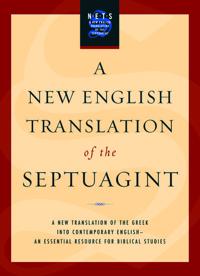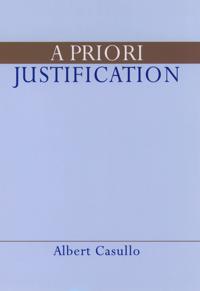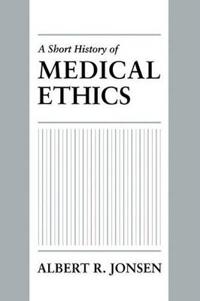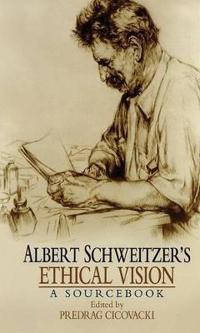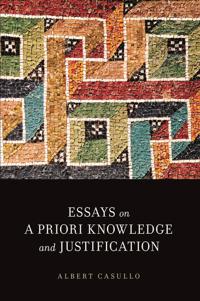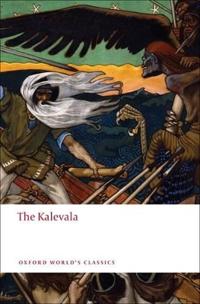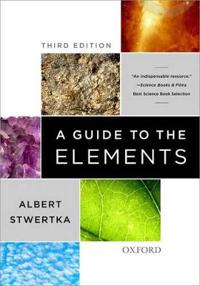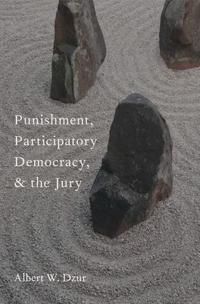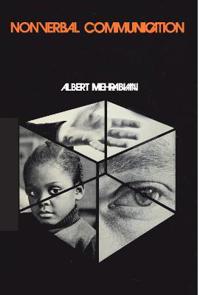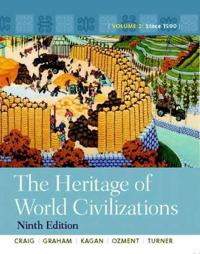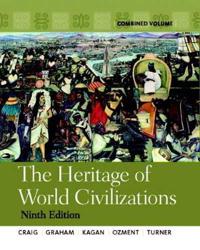A New English Translation of the Septuagint (Inbunden)
avAlbert Pietersma, Benjamin G. Wright
ISBN: 9780195289756 - UTGIVEN: 200711The Septuagint (the ancient Greek translation of Jewish sacred writings) is of great importance in the history of both Judaism and Christianity. The first translation of the books of the Hebrew Bible (plus additions) into the common language of the ancient Mediterranean world made the Jewish scriptu[...]
A Priori Justification (Häftad)
avAlbert Casullo
ISBN: 9780195304183 - UTGIVEN: 2006-01The major divide in contemporary epistemology is between those who embrace and those who reject a priori knowledge. Albert Casullo provides a systematic treatment of the primary epistemological issues associated with the controversy. By freeing the a priori from traditional assumptions about the nat[...]
Foundations of Evidence-Based Social Work Practice (Häftad)
avAlbert R. Roberts
ISBN: 9780195305586 - UTGIVEN: 2006-02"Concise introduction to evidence-based social work that introduces the issues and methods most frequently encountered while preparing for evidence-based social work practice"--Provided by publisher.[...]
The Clarinet in the Classical Period (Häftad)
avAlbert R. Rice
ISBN: 9780195342994 - UTGIVEN: 2007-12Acclaimed author of The Baroque Clarinet, Albert R. Rice, now presents a comprehensive study of the clarinet in use through the classical period, from 1760 to 1830. During the early part of this intensive period of musical experimentation, the clarinet was transformed from a typically baroque instru[...]
A Short History of Medical Ethics (Pocket)
avAlbert R. Jonsen
ISBN: 9780195369847 - UTGIVEN: 2008-07A physician says "I have an ethical obligation never to cause the death of a patient," another responds, "My ethical obligation is to relieve pain even if the patient dies." The current argument over the role of physicians in assisting patients to die constantly refers to the ethical duties of the p[...]
Albert Schweitzer's Ethical Vision (Häftad)
ISBN: 9780195377897 - UTGIVEN: 200902Albert Schweitzer's leading philosophical idea was "reverence for life": good consists in maintaining and perfecting life, evil in destroying and obstructing life. For Schweitzer, all life is sacred, and ethics deals with human attitudes and behavior toward all living beings. Unlike most other moral[...]
Pocket Guide to Crisis Intervention (Pocket)
avAlbert R. Roberts, Kenneth R. Yeager
ISBN: 9780195382907 - UTGIVEN: 2009-03-26Oxford Reading Tree: Level 10: Snapdragons: Prince Albert's Birthday (Pocket)
avJane Clarke
ISBN: 9780198455790 - UTGIVEN: 2005-01-27Approaching the End: A Theological Exploration of Death and Dying (Inbunden)
avDavid Albert Jones
ISBN: 9780199287154 - UTGIVEN: 2007-08-30Essays on a Priori Knowledge and Justification (Pocket)
avAlbert Casullo
ISBN: 9780199395750 - UTGIVEN: 2014-07The past twenty-five years have seen a major renewal of interest in the topic of a priori knowledge. In the sixteen essays collected here, which span this entire period, philosopher Albert Casullo documents the complex set of issues motivating the renewed interest, identifies the central epistemolo[...]
The Kalevala (Pocket)
avElias Lonnrot, Keith Bosley, Albert B. Lord
ISBN: 9780199538867 - UTGIVEN: 200902The Kalevala is the great Finnish epic, which like the Iliad and the Odyssey, grew out of a rich oral tradition with prehistoric roots. During the first millenium of our era, speakers of Uralic languages (those outside the Indo-European group) who had settled in the Baltic region of Karelia, that st[...]
Angels (Pocket)
avDavid Albert Jones
ISBN: 9780199547302 - UTGIVEN: 2011-10-27What are angels? Where were they first encountered? Can we distinguish angels from gods, fairies, ghosts, and aliens? And why do they remain so popular? This Very Short Introduction investigates stories and speculations about angels in religions old and new, in art, literature, film, and the popular[...]
Angels (Inbunden)
avDavid Albert Jones
ISBN: 9780199582952 - UTGIVEN: 2010-03What are angels? Where were they first encountered? Can we distinguish angels from gods, faeries, ghosts, and aliens? And why do they remain so popular? In this introduction to the history of angels, David Albert Jones outlines some of the more prominent stories and speculations about angels in Juda[...]
Democratic Justice And The Social Contract (Inbunden)
avAlbert Weale
ISBN: 9780199684649 - UTGIVEN: 2013-08-15The book offers a novel and original synthesis of work in modern political theory and in political science and political economy to offer a theory of democratic justice, considering society as a social contract.[...]
Valuing an Entrepreneurial Enterprise (Inbunden)
avDavid B. Audretsch, Albert N. Link
ISBN: 9780199730377 - UTGIVEN: 2012-02-03Essays on a Priori Knowledge and Justification (Inbunden)
avAlbert Casullo
ISBN: 9780199777860 - UTGIVEN: 2012-03The past twenty-five years have seen a major renewal of interest in the topic of a priori knowledge. In the sixteen essays collected here, which span this entire period, philosopher Albert Casullo documents the complex set of issues motivating the renewed interest, identifies the central epistemolo[...]
A Guide to the Elements (Häftad)
avAlbert Stwertka
ISBN: 9780199832521 - UTGIVEN: 201204Newly updated throughout, and now covering 118 elements, this crystal-clear guide to the periodic table illuminates the basic concepts of chemistry as it traces the history and development of our knowledge of the material world. In this fascinating volume, Albert Stwertka makes complex ideas and ter[...]
Punishment, Participatory Democracy, and the Jury (Inbunden)
avAlbert W. Dzur
ISBN: 9780199874095 - UTGIVEN: 2012-09Focusing contemporary democratic theory on the neglected topic of punishment, Punishment, Participatory Democracy, and the Jury argues for increased civic engagement in criminal justice as an antidote to the American penal state. Albert W. Dzur considers how the jury, rather than merely expressing u[...]
Nonverbal Communication (Häftad)
avAlbert Mehrabian
ISBN: 9780202309668 - UTGIVEN: 200702Even though our society subtly discourages the verbal expression of emotions, most of us, in ostensibly conforming to our roles, nevertheless manage to express likes, dislikes, status differences, personalities, as well as weaknesses in nonverbal ways. Using vocal expressions; gestures, postures, an[...]
The Heritage of World Civilizations (Häftad)
avAlbert M. Craig, William A. Graham, Donald Kagan
ISBN: 9780205803477 - UTGIVEN: 201012Written by leading scholars in their respective fields, The Heritage of World Civilizations offers compelling and thorough coverage of the unique heritage of Asian, African, Middle Eastern, European, and American civilizations, while highlighting the role of the world's great religious and philosop[...]
The Heritage of World Civilizations (Inbunden)
avAlbert M. Craig, William A. Graham, Donald Kagan
ISBN: 9780205803507 - UTGIVEN: 201012Written by leading scholars in their respective fields, The Heritage of World Civilizations offers compelling and thorough coverage of the unique heritage of Asian, African, Middle Eastern, European, and American civilizations, while highlighting the role of the world's great religious and philosop[...]
The Heritage of World Civilizations (Häftad)
avAlbert M. Craig, William A. Graham, Donald Kagan
ISBN: 9780205835492 - UTGIVEN: 2011-06A global perspective on the major narratives of world history. Written by leading scholars in their respective fields, The Heritage of World Civilizations offers compelling and thorough coverage of the unique heritage of Asian, African, Middle Eastern, European and American civilizations while high[...]
Art in an Age of Civil Struggle, 1848-1871 (Inbunden)
avBoime, Albert
ISBN: 9780226063287 - UTGIVEN: 2008-05-23From the European revolutions of 1848 through the Italian independence movement, the American Civil War, and the French Commune, the era Albert Boime explores in this fourth volume of his epic series was, in a word, transformative. The period, which gave rise to such luminaries as Karl Marx and Char[...]



